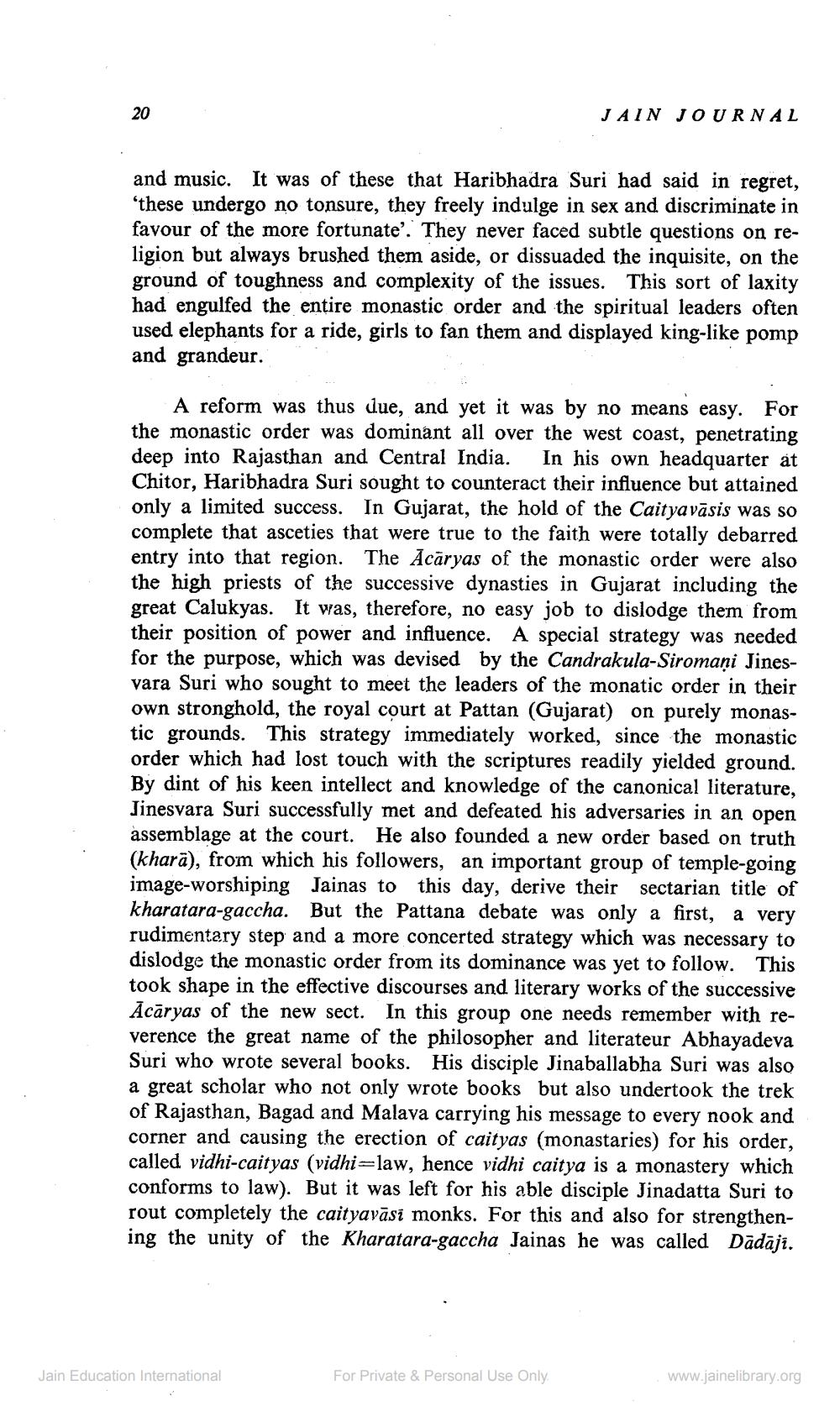________________
20
and music. It was of these that Haribhadra Suri had said in regret, 'these undergo no tonsure, they freely indulge in sex and discriminate in favour of the more fortunate'. They never faced subtle questions on religion but always brushed them aside, or dissuaded the inquisite, on the ground of toughness and complexity of the issues. This sort of laxity had engulfed the entire monastic order and the spiritual leaders often used elephants for a ride, girls to fan them and displayed king-like pomp and grandeur.
JAIN JOURNAL
A reform was thus due, and yet it was by no means easy. For the monastic order was dominant all over the west coast, penetrating deep into Rajasthan and Central India. In his own headquarter at Chitor, Haribhadra Suri sought to counteract their influence but attained only a limited success. In Gujarat, the hold of the Caityavāsis was so complete that asceties that were true to the faith were totally debarred entry into that region. The Acaryas of the monastic order were also the high priests of the successive dynasties in Gujarat including the great Calukyas. It was, therefore, no easy job to dislodge them from their position of power and influence. A special strategy was needed for the purpose, which was devised by the Candrakula-Siromani Jinesvara Suri who sought to meet the leaders of the monatic order in their own stronghold, the royal court at Pattan (Gujarat) on purely monastic grounds. This strategy immediately worked, since the monastic order which had lost touch with the scriptures readily yielded ground. By dint of his keen intellect and knowledge of the canonical literature, Jinesvara Suri successfully met and defeated his adversaries in an open assemblage at the court. He also founded a new order based on truth (khara), from which his followers, an important group of temple-going image-worshiping Jainas to this day, derive their sectarian title of kharatara-gaccha. But the Pattana debate was only a first, a very rudimentary step and a more concerted strategy which was necessary to dislodge the monastic order from its dominance was yet to follow. This took shape in the effective discourses and literary works of the successive Acaryas of the new sect. In this group one needs remember with reverence the great name of the philosopher and literateur Abhayadeva Suri who wrote several books. His disciple Jinaballabha Suri was also a great scholar who not only wrote books but also undertook the trek of Rajasthan, Bagad and Malava carrying his message to every nook and corner and causing the erection of caityas (monastaries) for his order, called vidhi-caityas (vidhi-law, hence vidhi caitya is a monastery which conforms to law). But it was left for his able disciple Jinadatta Suri to rout completely the caityavasi monks. For this and also for strengthening the unity of the Kharatara-gaccha Jainas he was called Dādāji.
Jain Education International
For Private & Personal Use Only
www.jainelibrary.org




